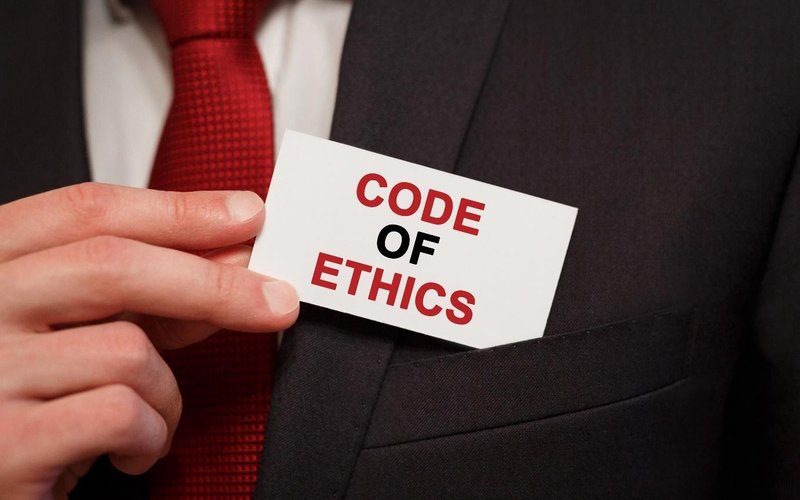
by John McCarthy Consulting Ltd. | Jun 18, 2022 | Blog, News
Question from a firm – I am the MLRO in our firm. I am not sure whether I must or cannot report a situation I have been made aware of. Our client came to Ireland some years ago and for a few months she was unemployed but lived in a hotel.
Our Tax Manager asked her how she managed to fund this and she mentioned an offshore bank account of which we were unaware. The Tax Manager explained that any income would need to be declared on her tax return and the client asked her to forget she had mentioned it as she didn’t want the Revenue to know about it because the money had come from a friend. The Tax Manager came and reported to me as the MLRO.
My understanding of the rules is that because we were not being asked to give legal advice or clarify the law, legal professional privilege doesn’t apply to us here, but this is an area about which I am not too familiar, so I am grateful for some advice.
Answer – You are absolutely correct in your understanding. You need to consider the original source of the information. In this case it arose from a routine question during normal compliance work and so is not covered by the privileged circumstances exemption from reporting in privileged circumstances (see more in Chapter 7 (paragraph 7.4) of the latest CCAB-I AML Guidance updated in March 2022. It seems clear that the client is evading tax, and since the information came to you in the course of a regulated business you must report it as a suspicious transaction report (STR) to the Garda and the Revenue Commissioners as money laundering.
The other issue is that you cannot submit a tax return that you know to be incorrect; otherwise you would be involved in an arrangement to help your client defraud the Revenue.
You also need to consider your ethical position. The Code of Ethics of all professional accountancy bodies will state something to the effect that you cannot continue to act for a client on tax matters where you know her tax affairs are deliberately misstated, other than to help regularise the situation. If the client persists in this position you will need to resign.
Had the client come to you and openly disclosed the offshore account and was willing to get her tax affairs regularised while asking for your advice on what she should do, then the information would have been received in privileged circumstances (see Section 46 of the Criminal Justice (Money Laundering and Terrorist Financing) Acts 2010 to 2021) and you would not be able to report. You would still be in the same position from an ethical standpoint.
Are your AML Policies Controls & Procedures up to date?
We have just released our latest Anti-Money Laundering Policies Controls & Procedures Manual (March 2022) – View the Table of Contents click here.
We have also just released an updated AML webinar (March 2022) available here, which accompanies the AML Manual. It explains the current legal AML reporting position for accountancy firms.
To ensure your letters of engagement and similar templates are up to date visit our site here where immediate downloads are available in Word format. A bulk discount is available for orders of five or more items if bought together.
For our latest Audit Quality Control Manual (October 2021) (implementing the latest Irish Audit & Accounting Supervisory Authority standards including ISQC1 on audit quality control) click here. View the Table of Contents here.

by John McCarthy Consulting Ltd. | Feb 8, 2020 | Blog, News
As we highlighted last week there is a newly revised and restructured Code of Ethics coming soon for accountants in Ireland, expected to be effective from the 1st of March 2020.
Sometimes accountants realise they have a conflict of interest due to lack of foresight or pre-planning. An example could be trying to sort out a dispute between two clients of the same accountant. The new Code seeks to address this with more guidance.
Conflicts of Interest
The sections on conflicts of interest in the new code have been completely replaced and split into two sections, 210 and 310, covering ‘business’ and ‘public practice’ respectively.
These sections have been revised and the guidance on ‘how to apply the conflicts of interest requirements’ has been enhanced.
The new section maintains the requirement for all parties to be notified of the conflict and obtain their explicit written consent, but also:
- Gives examples of the types of conflict of interest;
- Makes explicit reference to the ‘RITP’ test – the Reasonable and Informed Third Party test (which was only hinted at in the past). The definition of ‘RIPT’:
- The reasonable and informed third party is someone ‘who weighs all the relevant facts and circumstances that the accountant knows, or could reasonably be expected to know, at the time the conclusions are made. The reasonable and informed third party does not need to be an accountant, but would possess the relevant knowledge and experience to understand and evaluate the appropriateness of the accountant’s conclusions in an impartial manner.’ – (from 120.5 A4 in the proposed new Code of Ethics)
- Sections 210/310 also provide additional discussion of matters such as conflict identification processes, safeguards, types of disclosure and consent, and when work can be taken on without disclosure and consent.
A helpful flowchart to aid the decision-making process regarding conflicts of interest is available at this link (courtesy of the ICAEW helpsheet from December 2019).
Watch our website for the forthcoming webinar on the new rules.
See our latest additions to the website store which are the AML Business-Wide Risk Assessment Word template and a webinar on how to prepare it. Both of these help firms comply with the latest requirements of Section 30A of the Criminal Justice (Money Laundering and Terrorist Financing) Acts, 2010 to 2018, effective from 26 November 2018.
For other webinar topics including Investment Property Accounting, FRS 105, Common Errors in FRS 102 Accounting and the latest on FRS 105 and company law, visit our online webinar training website.

by John McCarthy Consulting Ltd. | Feb 4, 2020 | Blog, News
As we highlighted last week there is a newly revised and restructured Code of Ethics coming soon for accountants in Ireland, expected to be effective from the 1st of March 2020.
As readers might know, the Code of Ethics used by accountants across the British Isles is based on the code issued by the International Ethics Standards Board for Accountants – the IESBA code. The format and layout for the new Code of Ethics will look completely different from the previous version. The purpose of this change is to help with the understanding and application of ethical practice.
NOCLAR
The most significant change, however, is the inclusion of ‘NOCLAR’ (Non-Compliance with Law And Regulation), which provides further emphasis on whistleblowing in the ‘public interest’. The term ‘public interest’ is dealt with in 100.1 of the existing Code as follows:
‘Acting in the public interest involves having regard to the legitimate interests of clients, government, financial institutions, employers, employees, investors, the business and financial community and others who rely upon the objectivity and integrity of the accounting profession to support the propriety and orderly functioning of commerce.
This reliance imposes a public interest responsibility on the profession. Professional accountants* shall take into consideration the public interest and reasonable and informed public perception in deciding whether to accept or continue with an engagement or appointment, bearing in mind that the level of the public interest will be greater in larger entities and entities which are in the public eye.’
NOCLAR is dealt with in two brand-new sections 260 and 360, which cover members in ‘business’ and ‘public practice’, respectively.
The Code includes additional guidance material giving members specific permission to breach confidentiality where the accountant considers it to be in the public interest.
The inclusion of NOCLAR in the IESBA Code requires an accountant suspecting a business or client related illegal act to consider whether the act is inconsequential; and if not, they should raise it internally with the client or employer. If the accountant does not consider that the client or employer has dealt with the issue properly, the accountant should make disclosure to the relevant external authority, if it is in the public interest to do so.
The previous version of the Code of Ethics, however, already included specific detail to breach confidentiality in the public interest and so the NOCLAR provisions (new sections 260 and 360) can be seen as a change of detail rather than of substance.
Next week we will look at the second most important change in the Code’s structure, to do with conflicts of interest.
Please see our latest additions to the website store which are the template AML Business-Wide Risk Assessment template and a webinar on how to prepare it. Both of these help firms comply with the latest requirements of Section 30A of the Criminal Justice (Money Laundering and Terrorist Financing) Acts, 2010 to 2018.
For other webinar topics including Investment Property Accounting, FRS 105, Common Errors in FRS 102 Accounting and the latest on FRS 105 and company law, visit our online webinar training website.
Once the webinar viewing is completed, customers will automatically receive a CPD Certificate confirming their learning.

by John McCarthy Consulting Ltd. | Jan 27, 2020 | Blog, News
A reminder of what they are before the new Code of Ethics becomes effective
The nature of accountancy and the complexity of the work that accountants, tax advisers, insolvency practitioners and auditors do, means that this work needs to be trusted, and demonstrate the highest standards of professional conduct.
The Code of Ethics and its obligations are therefore a key part of the accounting profession’s commitment to these standards.
Early this year, Chartered Accountants Ireland (among the other professional bodies that subscribe to the IESBA Code) will be launching a new Code of Ethics. If you want to get a sneak peek at what the new Code will look like, have a look at the UK ICAEW Code here at Code of Ethics, updated from 1 January 2020.
It is not expected that there will be many changes of substance to the Professional Accountancy Bodies Codes of Ethics. One of the primary differences, however, is expected to be the new style of language used in writing the Code. The purpose of this change is to make the new Code easier to navigate and to help with the understanding and application of ethical practice. For example, it will be clearer which parts of the new Code are requirements, and which are guidance.
Before this new Code comes into effect, as a reminder, let’s look at the five fundamental principles (which will remain unchanged) of the existing code. These principles govern all ethical behaviour for accountants in practice and in business and indeed accountancy students:
Fundamental Principles of Ethical Behaviour:
- Integrity – to be straightforward and honest in all professional and business relationships. Integrity also means that members must not knowingly be associated with misleading information.
- Objectivity – not to compromise professional or business judgements because of bias, conflict of interest or undue influence of others. If undertaking an assurance engagement, members must also be and appear to be independent.
- Professional Competence and Due Care – to attain and maintain professional knowledge and skill at the level required to ensure that a client or employing organisation receives competent professional service, based on current technical and professional standards and relevant legislation; and act diligently and in accordance with applicable technical and professional standards.
- Confidentiality – to respect the confidentiality of information acquired as a result of professional and business relationships. Confidential information must not be disclosed outside the organisation without authority, unless there is a duty or right to disclose, or disclosure is in the public interest and permitted by law.
- Professional Behaviour – to comply with relevant laws and regulations and avoid any conduct that the professional accountant knows or should know might discredit the profession.
Please visit our website for 20 webinar topics including Investment Property Accounting, FRS 105, Common Errors in FRS 102 Accounting and the latest on FRS 105 and company law, visit our online webinar training website.
Once viewing is completed, customers will automatically receive a CPD Certificate confirming their learning.









